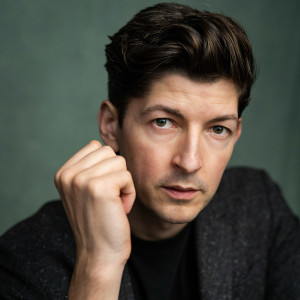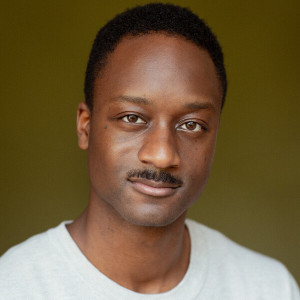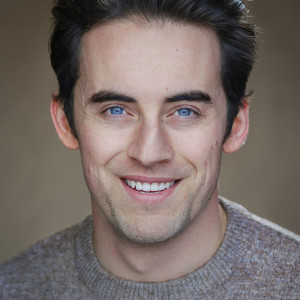“No” is a common word in the actor's world, and while it stings, the most successful actors are those who bounce back.
Whether you’re a budding actor or an established one, rejection is inevitable. You need to learn how to grow and cope with rejections.
This article will walk you through some of the best tactics actors use to handle and overcome rejection.

How Do You Know If You Failed an Audition?
Wondering how to know if you got the part in an audition or failed?
In the audition world, silence often speaks volumes. If you’re selected, you’ll get a callback. However, if you don't hear back, it typically means they have chosen someone else.
While it would be nice to get a rejection letter, casting directors often can't inform every auditioner who didn't make the cut.
They also can't reveal why one actor was chosen over another due to time constraints and a mountain of admin work. So, don't get disheartened if you don't get feedback.
You can gather insights from fellow auditioners. Various online platforms and community forums allow performers to share audition updates, including callbacks.
If someone else gets a callback before you do, stay optimistic and focus on your next audition.
How to Deal With Rejection?
Wondering what to do after a rejection or how to cope with rejection?
Rejections are a big part of every actor's journey, and you must learn to handle them. Even those with strong resilience can feel down during a long streak of rejections.
If you want the best acting tips for auditions or seeking acting classes near me, Superprof can help. They have a wide pool of acting coaches who can help you learn acting, even acting for beginners.
Nevertheless, listed below are a few tactics you should use when dealing with rejections:

Take Rejection as a Part of the Process
You may choose the right monologue, but it may not be what the directors seek. Remember, losing sync with the other party is completely natural, as you cannot read the casting directors’ minds for the specifications they are looking for in an actor.
One of the first things you need to accept is rejection is a by-product of acting, and everyone – without any exception – experiences it.
It's an integral part of this job; you accept it when you join the profession. So, when you face your first, second, or even 500th 'no,' don't feel utterly shocked. Remember, the highs in this field outweigh the lows.
Many performers have felt the sting of rejection throughout their careers, so you're not alone. It's alright to be upset; it shows how much acting means to you.
If your passion for acting is stronger than the sadness of rejection, you'll keep pushing through. Acting has its ups and downs, but we accept it – flaws and all.
Understand Why You Didn't Get the Role
If you didn't quite fit the role, consider seeking feedback. You can ask your agent to request notes from your casting director.
Embrace your mistakes as opportunities for growth – not failures. After all, acting is a multifaceted profession that demands a lot.
Despite its superficial appearance, it's intricate and competitive. Even if you secure a meeting, don't be disheartened if you hear silence afterwards.
In this age of increased competition and social media influence, the industry is more cutthroat than ever. So, value your audition experiences and seek feedback when possible.
Accept rejection, listen, learn, and use it to improve acting. As the famous English novelist Elizabeth Day says,
Learning how to fail is learning how to succeed better.
By accepting the feedback, you can apply it to your self-taped auditions for practice. This will help you learn, address, and fix your shortcomings as an actor.
Motivate Yourself
Another useful way of coping with rejection is to turn rejection into motivation. Let it fuel your determination and keep your focus on your goals.
It's normal to feel upset after a rejection but don't let that sadness seep into other aspects of your life and snowball into a bigger issue.
Instead, adjust your mood, engage in different activities, and keep anxious thoughts in check. Equally, you should avoid bitterness and negative talk about successful actors or casting directors.
The most impressive response to not getting a role is to bounce back. Value the opportunities to connect with new creative minds, maintain professionalism, stay curious, and move forward to the next audition.
Let rejection inspire your journey.

Find Alternative Avenues
If acting is your sole artistic focus and strictly professional, each audition can seem make-or-break.
Don't forget, you're an artist – not just a commodity. Find ways to express your artistry that don't rely on external validation. For example, you can practice scenes with friends, organize your readings, or explore non-acting creative hobbies.
When you have a sense of artistic control, rejections often lose their grip. Plus, honing your skills outside of gigs keeps them sharp and ready.
Improve Your Resiliency
Despite the efforts, sometimes controlling emotions can be a real challenge.
If you find it hard to separate your self-worth from your work and each setback hits you hard, developing the tools to bounce back is essential.
Consider seeking therapy, counselling, or connecting with artists’ resources to strengthen your resilience. You need to expand and fortify your support network to have a solid foundation during times of doubt.
Make sure to actively engage in practices that boost your mental well-being and self-esteem beyond acting. With consistent effort, you'll become better at rebounding from disappointment.
It’s important to learn how to prepare for an audition. Superprof offers acting classes that can teach you everything, from choosing the right monologue to perfecting a headshot and resume.
Establish a Routine
No matter if you improve your resiliency, there will be days when you feel low. And some rejections may hurt more.
When you face a particularly raw rejection or overwhelming doubt, you must have a self-care routine. This ensures you don't have to figure it out when feeling low.
Find low-energy, simple things that bring comfort and strength after a professional setback.
Whether it's a soothing bubble bath, a calming cup of tea, watching your favourite movies, or engaging in fun activities, make sure you have quick access to what works for you.
This way, you can easily dive into your recovery routine when needed.
Do Not Take It Personally
While the industry may feel personal and intimate, remember, it's not about you. So don't let decisions crush your spirits.
Rejections are a universal experience everyone, including the most celebrated stars like Meryl Streep, has faced.
While it may feel like a personal catastrophe, it's a shared journey all can relate to. We typically only witness success, such as films, actors, and writers who have been chosen.
When, in fact, countless rejections happen behind the scenes. So, remember, every actor encounters rejection, even on a daily basis.
Superstars Who Failed At First
[table “us_101014” not found /]Everyone faces rejection at some point in their lives. Even A-listers faced rejection on their path to fame. Here’s a list of now-famous actors who failed at the beginning of their careers:
- Sidney Poitier – an Oscar winner – was once told by a casting director to quit acting and become the dishwasher after his first audition
- Lucille Ball – before "I Love Lucy" – was known for B-movies. She never aced top movie auditions
- Lady Gaga - turned to singing and became a legend when acting doors wouldn't open
- Scarlett Johansson - lost the role in "Jumanji" to Kirsten Dunst
- Harrison Ford - was told he wouldn't make it as a star
- Christian Bale - missed the role of Jack Dawson in "Titanic"
- Catherine Zeta-Jones - was considered "too old" at just 19 for a lead role in Aspects of Love
Take Online Acting Classes With Superprof

Acting is a difficult profession, and so is landing a role. If you want to improve your acting skills and learn how to give a perfect audition to land a role, take acting classes from Superprof’s acting coaches.
Frustrated with not getting an audition call back? Don't lose hope. Superprof’s certified, experienced acting tutors can assist you.
They provide customised online acting courses that can help you learn the skill and art quickly and the right way. You can even learn it at your own pace as they’re increasingly flexible – and provide both in-person and online acting classes.
Before choosing your favourite acting coach, you can explore tutors' profiles for details on their experience, qualifications, schedules, and rates.
Find your acting coach today and learn what goes into perfecting an audition and acting like Robert De Niro, Al Pacino, or Meryl Streep.
Summarise with AI:















